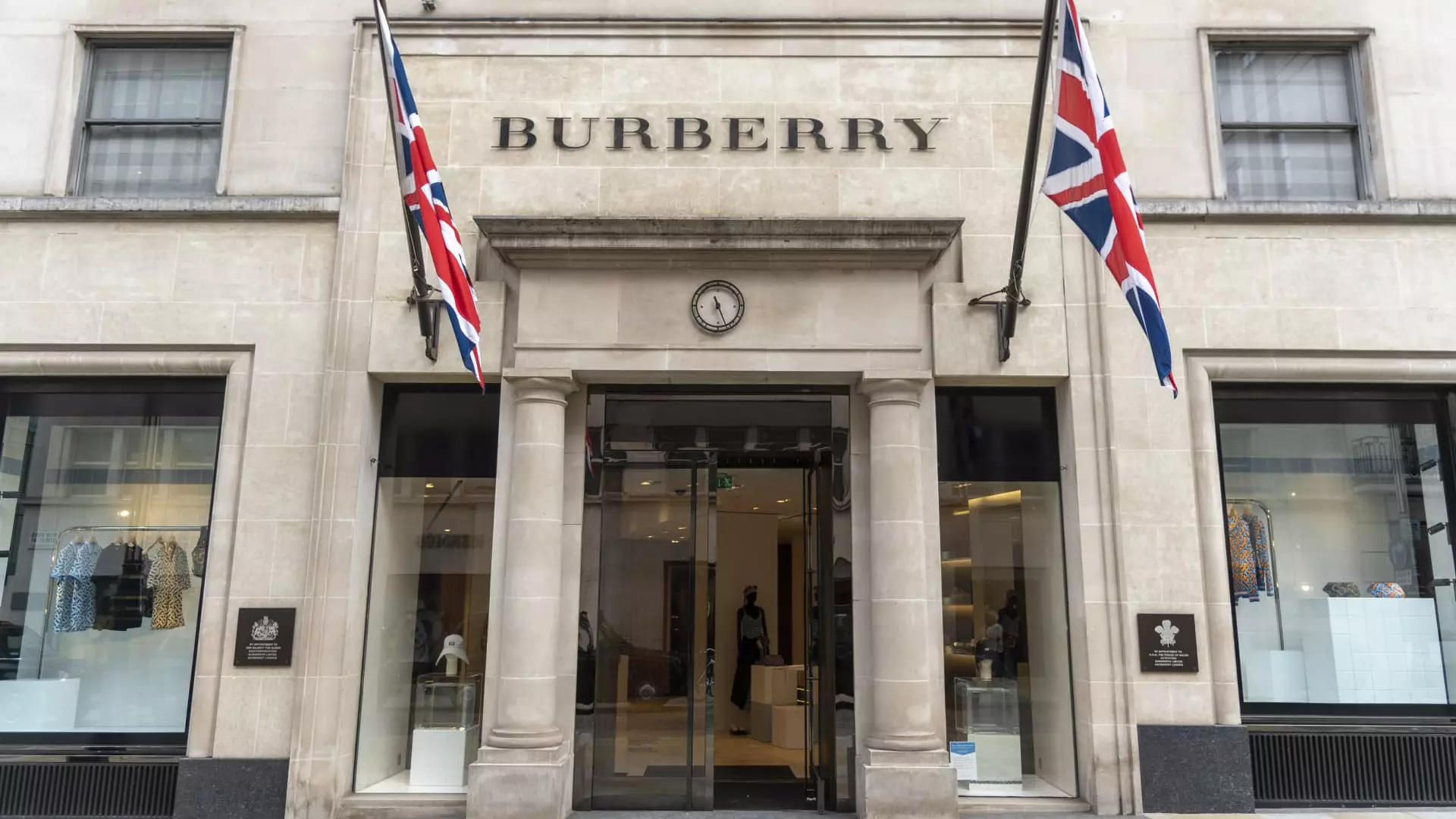The iconic British luxury fashion house Burberry Group recently experienced a significant setback as it dropped out of the U.K.’s prestigious FTSE 100 stock market index. This move came after a period of waning sales, management changes, and overall challenges faced by the 168-year-old retailer. The company’s share price has plummeted by over 53% in the current year and around 70% in the last 12 months, reflecting a sharp decline in investor confidence.
Burberry, founded in Basingstoke, England, in 1856, gained international recognition for its signature trench coats, handbags, and iconic check print. However, the brand’s image took a hit when its high-end aesthetic was compromised by the mass adoption of its patterns by the British working class in the 1990s and 2000s. Despite efforts by successive CEOs to revive Burberry’s luxury status, the market has remained unconvinced, leading to a cycle of struggles and failed attempts at recovery.
The appointment of Joshua Schulman as CEO in July hinted at a potential change in direction for Burberry. Schulman, a former CEO of Coach and Michael Kors, may introduce a “British Coach” strategy aimed at reducing costs, expanding outlets, and increasing exposure to off-price retailers. This fresh approach could potentially rejuvenate the company’s financial performance amidst a challenging market environment.
Analysts have raised concerns about Burberry’s soft brand momentum, suggesting that further market share losses could occur if the company fails to address its underlying issues promptly. The possibility of a takeover looms as a potential scenario unless significant strategic changes are implemented to reverse the downward trend in share prices. Schulman’s upcoming strategy update in November will be closely watched for indications of a turnaround plan.
Burberry’s struggles are not unique, as the luxury sector as a whole has faced headwinds from a downturn in consumer spending, inflationary pressures, and economic uncertainties. Chinese luxury consumption, in particular, has been severely impacted, leading to weaker sales for brands like Hugo Boss, Gucci, and LVMH. While some ultra-luxury players have managed to withstand the storm, the cyclical nature of the luxury sector underscores the need for proactive measures to navigate challenging market conditions.
Future Outlook and Investor Confidence
Investors and industry experts are closely monitoring Burberry’s half-year financial results due out on November 14 for insights into the company’s performance and strategic direction. The potential reinstatement of Burberry into the FTSE 100 remains uncertain, with fresh leadership and decisive actions needed to regain investor confidence and address longstanding issues. As Burberry grapples with its turnaround efforts, the broader luxury retail landscape serves as a reminder of the competitive and ever-evolving nature of the industry.

Leave a Reply